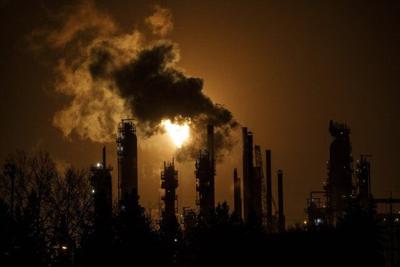OTTAWA - A peer review of fossil fuel subsidies between Canada and Argentina — already years behind schedule — stalled after Argentina ceased communication following its 2023 election and subsequent change in government.
The review was first launched in 2018 as part of a G20 commitment to eliminate all "inefficient" subsides to the fossil fuel sector. It was only supposed to take about two years to complete.
But it was clear as early as 2019 that it would be behind schedule and it now seems to have fallen off the rails entirely.
Canada says Argentina ceased communication and participation in the process after Argentines voted into office President Javier Milei — a right-wing populist who has referred to climate change as a “socialist lie.”
“Following its 2023 election, Argentina’s domestic policies with respect to the environment and climate change shifted significantly,” a spokesperson for Environment and Climate Change Canada said in a statement to The Canadian Press.
Argentina's negotiators left the annual UN climate talks in 2024 and reports earlier this year suggested Milei was considering withdrawing from the Paris climate pact altogether.
The department declined an interview request. It said in a followup statement that while Canada had some engagement with Argentina on the planning for a peer review process, “no additional progress has been made since Argentina’s election.”
Argentina's embassy in Canada forwarded a request for comment to authorities in Buenos Aires but did not provide a response.
Similar peer reviews undertaken between the United States and China, Germany and Mexico, and Italy and Indonesia took between 12 and 24 months to complete. As of 2021, 11 G20 peer reviews had been completed.
The studies serve as a way to independently take stock of a country's fossil fuel subsidies, better define what constitutes a subsidy and determine whether a subsidy is achieving the desired impact.
"I would not say that it had a lot of impact in phasing out subsidies," said Jonas Kuehl, a policy adviser in the energy program at the International Institute for Sustainable Development.
"It maybe has some impact on, like, what's the transparency about it and how do you structure them in such an inventory."
In 2023, Canada ended federal subsidies specific to the oil and gas sector. It still pays subsidies to the industry through programs which are also available to companies in other sectors.
Environmental organizations say Canada still spends billions of dollars to support oil and gas companies. A report by Environmental Defence says Canada spent close to $30 billion in 2024 to support the sector.
It's not clear if that money is part of general corporate subsidies also paid to companies in other sectors — like the Canada Growth Fund, which helps to support clean growth projects, or tax credits for technology that help companies lower their emissions.
This report by The Canadian Press was first published June 24, 2025.

